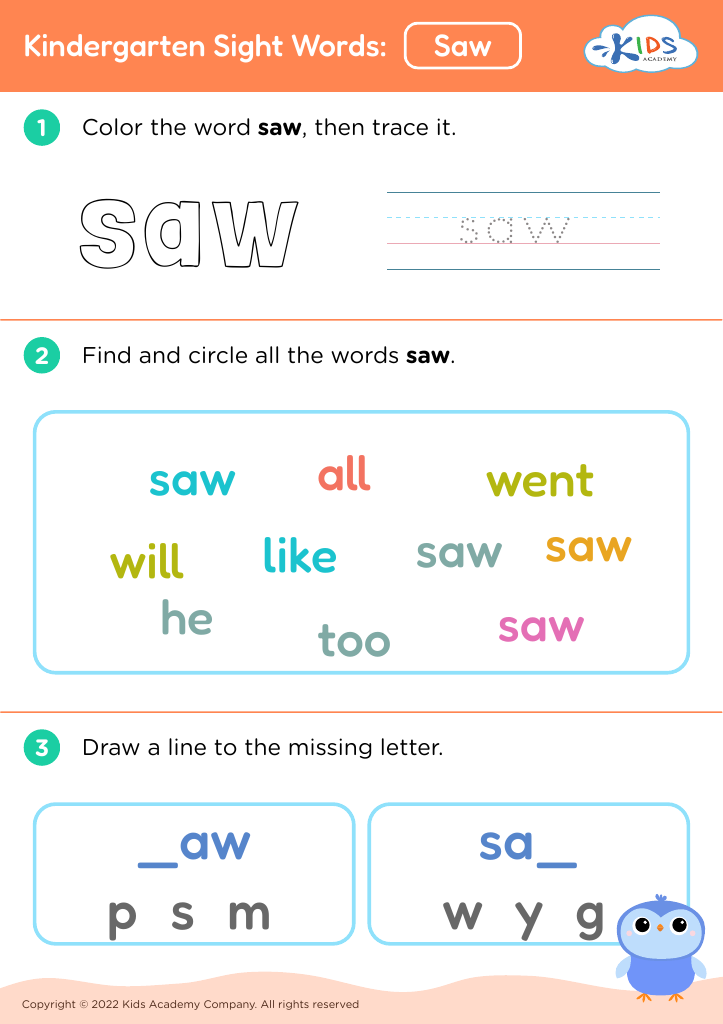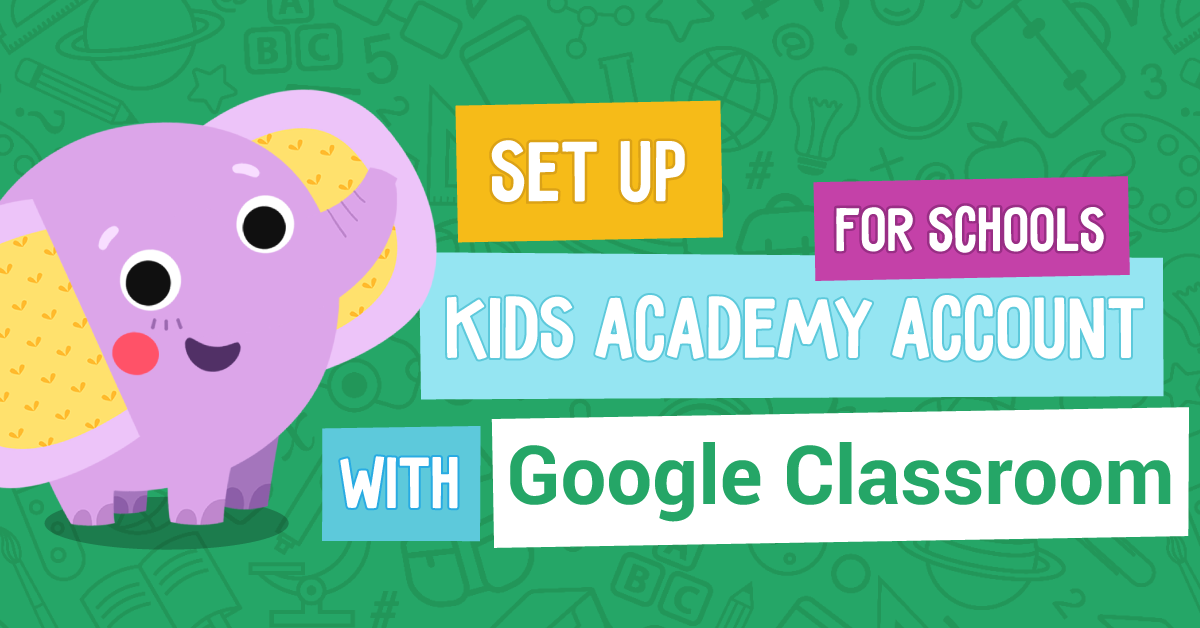Improving observational skills Worksheets for Ages 6-7
5 filtered results
-
From - To
Boost your child's observational skills with our engaging worksheets designed for ages 6-7. Our fun and interactive activities help young learners sharpen their attention to detail, enhance critical thinking, and improve memory through playful exercises. Incorporating colorful visuals and relatable scenarios, these worksheets encourage children to explore their surroundings and develop a keen eye for important information. Ideal for both home and classroom use, our resources seamlessly blend learning with play, making skills acquisition enjoyable. Perfectly aligned with early educational standards, these observational skills worksheets foster cognitive growth while inspiring curiosity and creativity in your child’s learning journey.
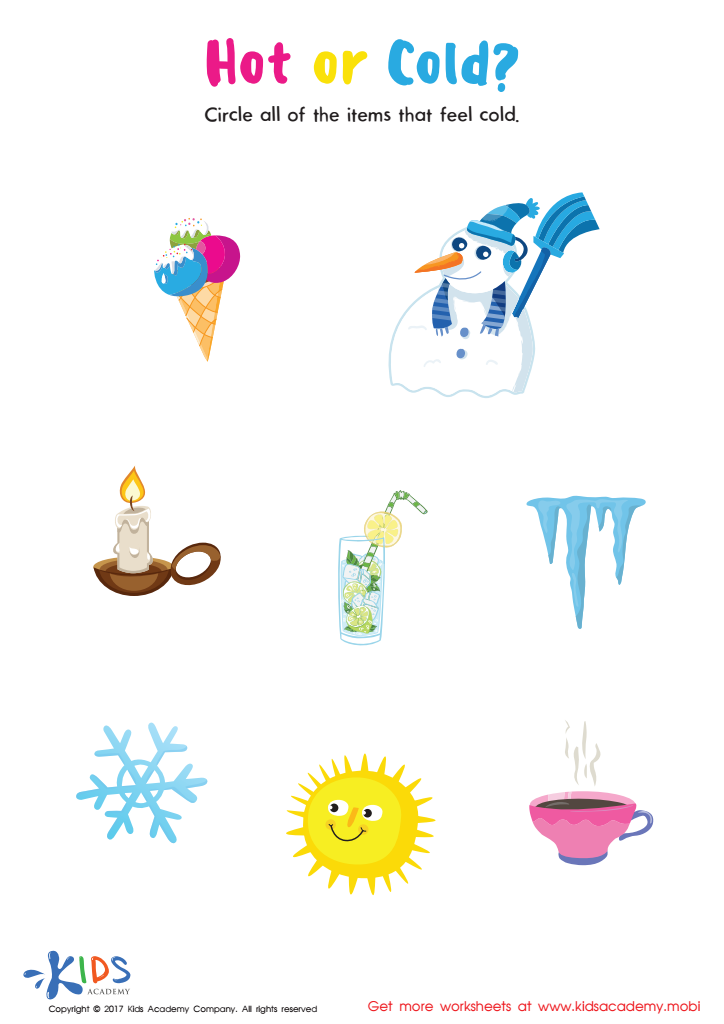

Hot or Cold Printable
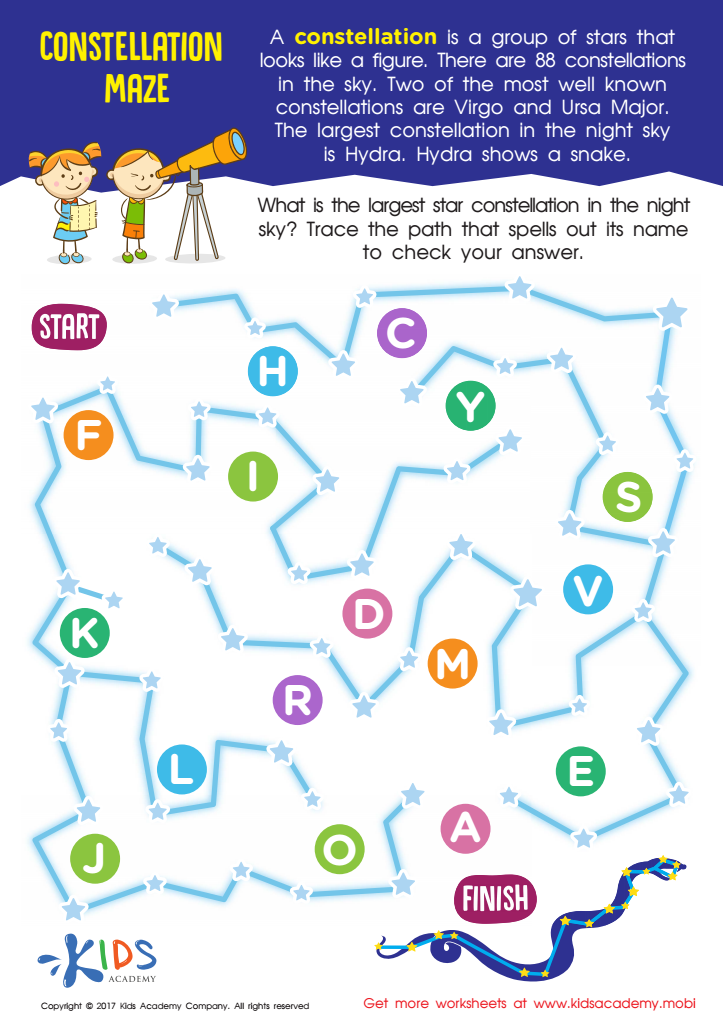

Constellations Worksheet
Improving observational skills in children aged 6-7 is crucial for their cognitive and social development. At this age, children are naturally curious and eager to explore the world around them. By fostering strong observational skills, parents and teachers can enhance their ability to notice and describe details about their environment, which is fundamental for learning. These skills support critical thinking and problem-solving abilities, guiding children to analyze situations more effectively.
As children observe their surroundings, they begin to develop empathy and better understand the perspectives of others. This understanding promotes social skills and improves interactions with peers, fostering teamwork and communication. Moreover, strong observational skills are foundational for future academic success, as they help children make connections across subjects, such as science, math, and literacy.
Activities that engage observational skills—like nature walks, art projects, or storytelling—encourage discussion and reflection, building insights and vocabulary. When parents and teachers prioritize these exercises, they help lay the groundwork for children’s lifelong learning and curiosity. Ultimately, enhancing observational skills in young children not only prepares them for future academic achievements but also supports their emotional maturity and social competence.

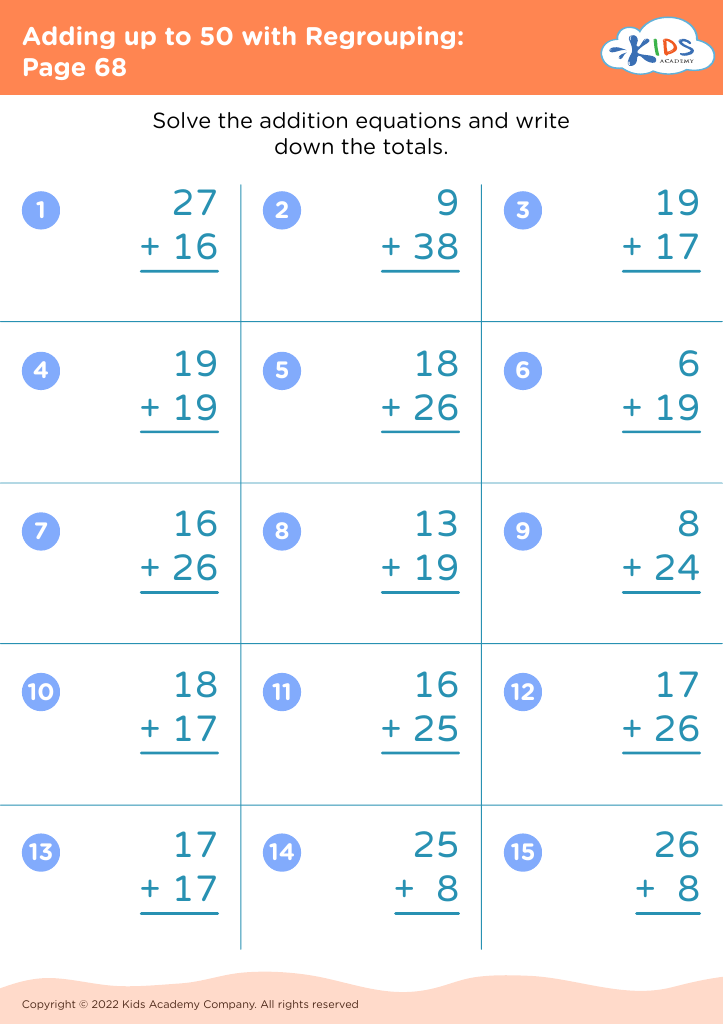
 Assign to My Students
Assign to My Students
